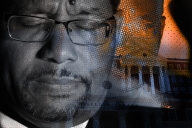You have /5 articles left.
Sign up for a free account or log in.
A federal appeals court on Friday rejected a bid by colleges to block the enforcement of a potentially expensive regulation on their Internet systems. But the court also accepted the argument that many of those networks may be exempt anyway. Lawyers are still trying to figure out what the ruling means, and while it is clearly not the victory college groups were hoping for, its exact impact may take more time and court rulings to determine.
At issue is the proper interpretation of the Communications Assistance for Law Enforcement Act, a 1994 law known as CALEA that was designed to assure that law enforement officials could have necessary access to phone lines when they needed to tap them. Last year, the Federal Communications Commission issued regulations to apply the law to Internet networks, and colleges have estimated that it could cost billions of dollars for them to bring their networks into compliance. Some interpretations of the regulations suggest that the cost could be much less than that, but the expenses could still be considerable.
College officials have said that they don't object to the concept of helping law enforcement officials -- with proper authority -- seeking access to their networks. But they have said that such requests are few and far between, and that colleges are able to provide speedy access when needed -- without reworking huge portions of their networks as the regulations could require. (Educause maintains a Web page with a range of resources on CALEA and higher education.)
The American Council on Education sued to challenge the FCC's broad interpretation of CALEA and on Friday, that challenge was rejected, 2-1, by a panel of judges of the U.S. Court of Appeals for the District of Columbia. The majority found that the FCC's interpretations were reasonable. At the same time, the court upheld the idea that private networks, including those run by many colleges and universities, are exempt.
Matthew A. Brill, a lawyer for the ACE, said that he was "disappointed" in the ruling and that colleges should not be facing the large expenses with which they now potentially could have to deal. He said that it was unclear whether an appeal would be filed and that all options would be considered.
One key question is what constitutes a private network that is exempt from the regulations. Brill said that the language on that issue isn't entirely clear, which is why the impact of the ruling may take some time to sort out. He said that much may depend on how university networks link into other networks. However that question turns out, Brill said, "I'm optimistic that many universities will be exempt."








